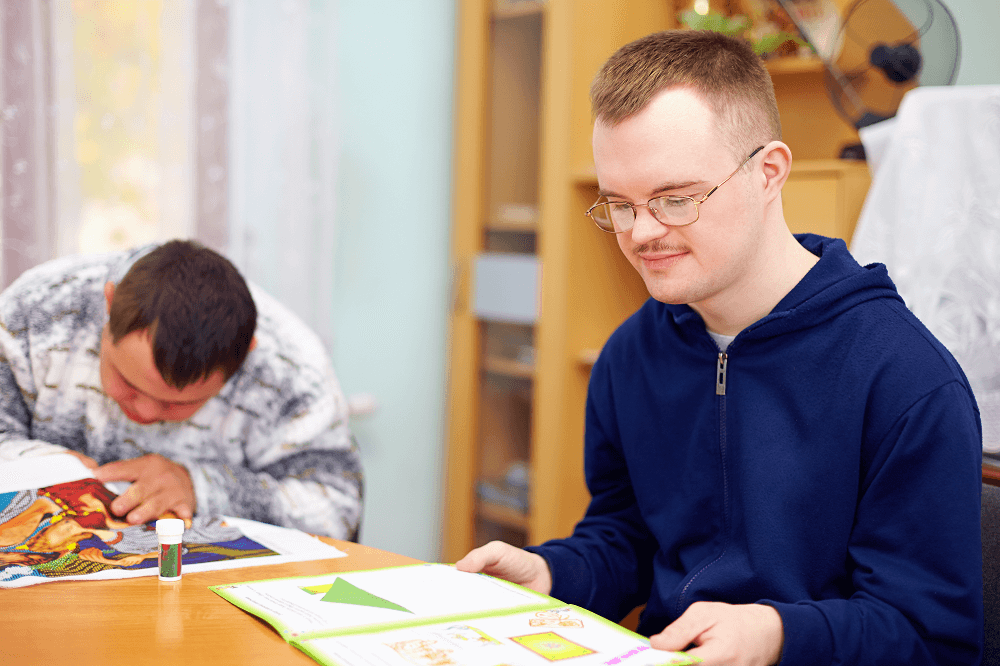How To Best Support Adults With Learning Disabilities

Parents and carers of adults with learning disabilities often feel lost when providing the best support possible for their loved ones. Most understand how crucial good support is, but many are not adequately educated on how to help them live as independently as possible.
Fortunately, there are many things you can do to help your loved one achieve educational goals and independence.
This post will discuss how you can help them thrive professionally and personally. We’ll also talk about the different types of support available for them.
5 Ways To Support Adults With Learning Disabilities
1. Understand the disability and how it affects the person
Before you can fully support a loved one with a learning disability, it’s helpful to first understand their disability and how it affects their functioning. Educating the family and carers about the problem should start as early as possible.
Adults with learning disabilities often present with low self-esteem, especially if they are unaware of the actual disorder. Thus, accurate diagnosis and consistent feedback from teachers, physicians, and other medical service providers can help these patients and their families identify the support they need.
Being aware of the disability and its functional consequences will help the family and support staff evaluate how to optimise the person’s education. They will better understand their needs and get appropriate assistance from a support team.
2. Implement personalised care and intervention plan
The ultimate objective of giving the best support to people with learning disability is to allow them to live independently and comfortably.
Carers must know that their role is to help the client transition to a more independent life, both personally and professionally. Having this in mind will help them build an environment and plan of care that will address the participant’s unique learning needs and goals.
There must be a consistent and open collaboration with the physician, disability and medical services personnel, and the participant’s family.
The team must also encourage the patient to actively participate in making decisions about their care.
3. Establish the best support team
The type of support your loved one needs depends on the extent of their disability and their individual needs and preferences. Some will require more support as in full-time day care services, while others might need lesser hands-on assistance.
Not all day care centres and disability support providers are created equal, so you’ll want to do diligent research to make sure you hire a team with proven expertise and track record.
The first step to getting the proper care for your loved one is determining their primary learning struggles. The support team must evaluate the participant and their current situation.
They should offer recommendations on how specific interventions will suit your loved one’s needs and should be able to answer your questions and clarify possible challenging scenarios.
Note that the cost of day care services for adults with learning disabilities differ per area, so consider your location and budget before making your final decision.
4. Encourage social interaction and community involvement
It can be challenging for people with a learning disability to socialise. This may be because they often find it difficult to understand or respond to social cues. It could also be secondary to physical disabilities associated with their condition.
This can make everyday activities like grocery shopping or even meeting friends daunting.
This makes community participation even more critical for them. A healthy social involvement can boost their confidence, improve their well-being and life skills, and ultimately encourage them to become independent and productive.
Disability support services that promote social interaction should include group activities that stimulate the participant’s creativity and interests. This can be arts and crafts, sports, and social events.
Your support team must collaborate with the local community to host these social activities in a safe and comfortable environment.
5. Learn and adapt
For adults who have a form of learning disability, every day can be different. While you must establish a daily routine for everyone’s convenience, it’s also vital that you approach each day with an open mind.
Trying to support a loved one with a learning struggle in an adaptable and flexible way can be tricky, but it’s not impossible.
The more you learn their needs, the better you understand how to respond to them. This allows you to give them more practical and suitable feedback for their situation.
St. Jude’s Learning Disability Support Services
It’s important to understand the repercussions of the learning disability for each individual. To help them achieve their educational goals and find success in life, the family members, carers, and service providers must promote independence by involving them in a wide range of stimulating and enjoyable social activities.
St. Jude’s provides social care services for people with learning disabilities to encourage fruitful community inclusion whilst also supporting their individual interests and motivations. Through a team of specialised therapy staff made up of Occupational Therapists, Speech Pathologists, Positive Behaviour Support Practitioners and Psychosocial Recovery Coaches, the client is better supported to cope with their day to day difficulties and pursue their personal learning goals.
If your loved one has a learning disability, the friendly team at St. Jude’s disability support services are here to help. Reach out to us today to learn more about how we can help.
|
|


